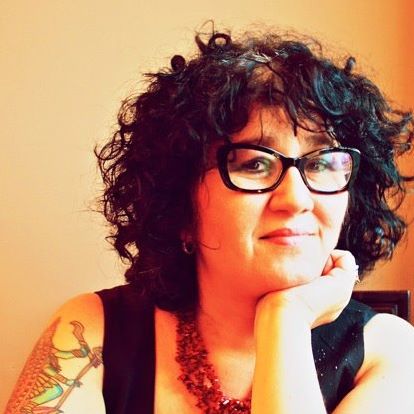“The Correspondent has a very poor track record with diversity in The Netherlands
In February 2017, as the country was on the last leg of the campaign for the House of Representative elections that took place in March of the same year, for example, they commissioned known centrist Joris Luyendijk to explore the feelings of notorious right wing politician Geert Wilders’ voters. The title of his piece: The common denominator of PVV voters: the feeling that something has been taken away from them. For an organization so committed as they claim to be to the values of emancipatory politics, one could argue that the feelings of people who vote for oppressive politics should always be treated with skepticism. What matters, ultimately, are the material consequences for their victims.
“The actions of The Correspondent to overwhelm critics through social media harassment would indicate that they don’t take to criticism well.
Surely someone as committed to diversity and inclusion would not seek to erase his critics? The actions of The Correspondent to overwhelm critics through social media harassment would indicate that they don’t take to criticism well. Perhaps because in The Netherlands, they easily dismiss criticism using the weight of their media power, they thought they could dismiss international critics in a similar fashion. It was quite telling that, for the first time, Wijnberg addressed what many had said before in Dutch. Since my Twitter thread was in English and it reached an international audience, the issue could no longer be kept confined to our local media comings and goings. Suddenly, and for the first time, The Correspondent was being scrutinized by the kind of audience that Wijnberg would like to attract.
“For all their talks about being a different kind of journalism, the Dutch experience has been quite the opposite
In The Netherlands, however, Wijnberg has systematically ignored critiques, especially those coming from people of color. On social media, he has even blocked some vocal women of color who attempted to engage with the repeated promises that have been made. Staff writers for The Correspondent have also been publicly hostile to people of color who speak about the publication’s issues with race. Up to now, The Correspondent as a media company has been completely unreceptive to critiques, except when performative declarations about diversity are made as part of marketing efforts. And even then, these declarations of “the need for diversity” also include the caveat of “diversity of ideas”. For all their talks about being a different kind of journalism, one that is accountable to the community and listens to the audience, the Dutch experience has been quite the opposite.
“Their star reporter has opened up about being assigned to a new editor who does not believe in climate change
An anonymous account1 of troubling working conditions has also been published this week. The writer, who calls themselves Themys Anonymous, claims that they fear retaliation and being unable to work in Dutch media again if their identity is revealed. They also mention an atmosphere of undemocratic decision making and strict power structures that directly contradict all the marketing points that Rob Wijnberg constantly touts as “the company values”. In October 2018, the magazine Quote published a rather damning account of the inner workings of De Correspondent. They mention the lack of diversity in a white, male, ego driven environment that puts up a facade of progressive values but is more akin to a cult. Their financial lack of transparency in regards to the use of subsidies and donations is extensively covered.
“Rutger Bregman uses dehumanising language in his essay to refer to trans people: “the transgenders”
However, this is not all. The essay also uses dehumanizing language to refer to trans people: “the transgenders”, a noun that is usually frowned upon to refer to trans people. Perhaps it is the case that Rutger Bregman is not necessarily familiar with the language of inclusion or might not know any trans people who could persuade him to use less alienating language (and therein lies the value of inclusion beyond marketing pitches). However, even when media organizations do not have direct contact with people from within the trans community, they could still use the guidelines issued by the European Union, in Dutch, about the preferred, non-dehumanizing way of referring to trans people. These language guidelines are freely available for download. If, as Wijnberg states, the organization is committed to change, surely as recently as a bit over six months ago, they would have known this.
“When a media organization represents the values of those who are marginalized by the structures of power, society at large improves
There are oblique references to diversity subsidies such as the one in a report from the Foundation for Narrative Journalism or references on the website of the Foundation for Democracy and Media but there has been no local accountability as to how these funds were used or to which concrete, long term objectives they were allocated. All we are left with are the promises that “now, finally, diversity matters”. In some cases, such as the 100,000 euro donation received from the Craig Newmark Foundation, the money was dependent on having a diverse team from the moment The Correspondent set foot in the US. The donation was specific for the US expansion and not meant to improve diversity at the Dutch offices of The Correspondent.
I truly hope that The Correspondent keeps the promises they’ve made to their American readership, patrons, donors and investors. When a media organization represents the values of those who are marginalized by the structures of power, society at large improves. The Correspondent could, maybe, finally fulfill its potential to occupy such space. If that happens, I also hope they finally fulfill the promises they have been making in The Netherlands since their foundation. We could also benefit from this newly acquired awareness.
The Correspondent informs us that they are not able to give out information about the diversity of their permanent editors, because the company does not collect this data. We are referred to the colophon, in which we find no ethnic diversity in the fixed editorial positions.
- This article has been taken offline. ↩︎
Verder lezen?
Rechtvaardige journalistiek verdient een rechtvaardige prijs.
Maak jij OneWorld mogelijk?
Word abonnee
- Digitaal + magazine — € 8,00 / maand
- Alleen digitaal — € 6,00 / maand




